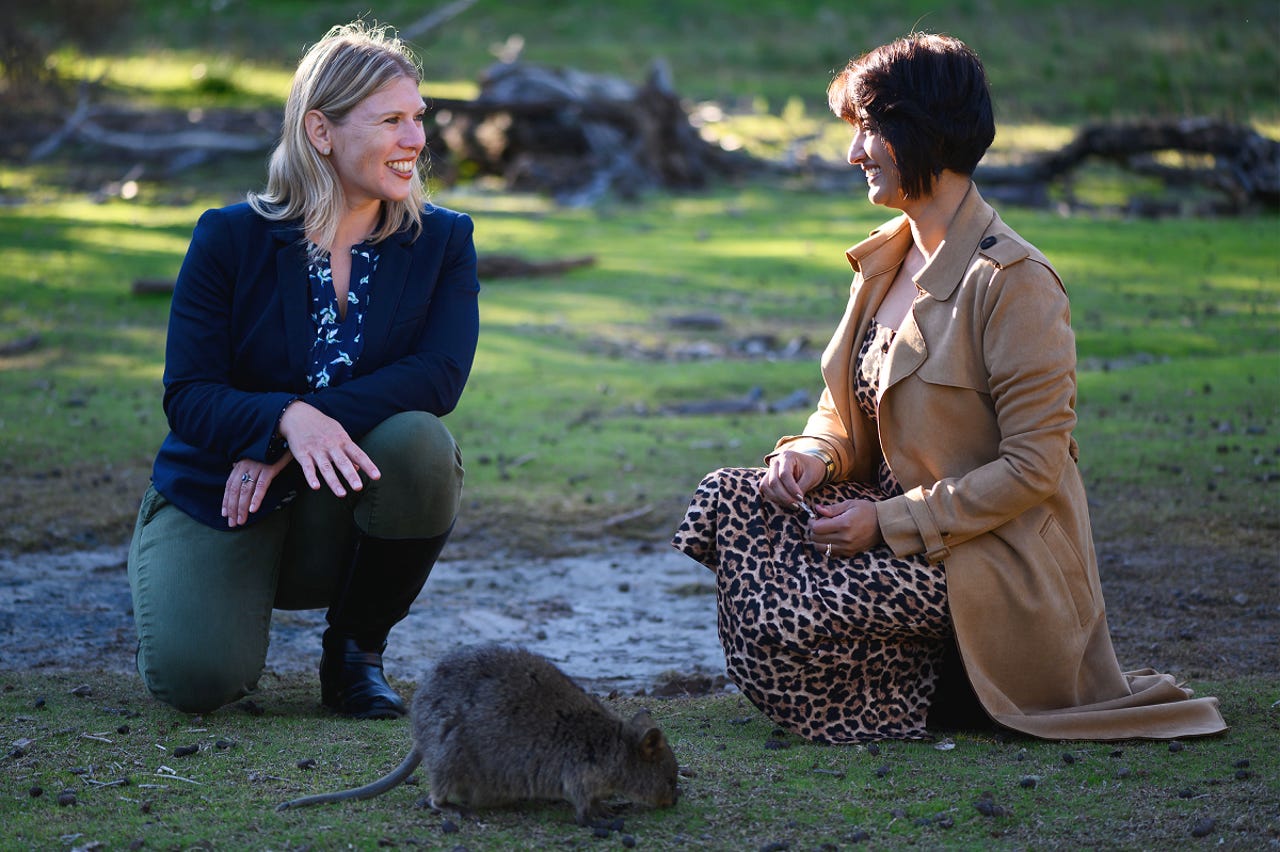University of WA secures Microsoft AI grant to help endangered species


University of Western Australia's (UWA) DNA Zoo initiative has been awarded a grant from Microsoft for a project that aims to help protect more than one million animal and plant species that are at risk of extinction.
DNA Zoo is a global initiative that involves more than 55 partners in eight countries, and UWA is the leading arm in Australia that collects, sequences, and analyses animal DNA as part of the initiative.
The funds from the grant will be used by DNA Zoo to develop the concept of using scat retrieval drones (SRDs) to collect genome samples of more than 40 threatened mammals in Australia, before using Microsoft cloud computing to democratise the analysis for DNA-based species monitoring.
The collected samples through the DNA Zoo program will be open source so it can be integrated with other open source data with machine learning applied to allow researchers to look for patterns of why some animals appear to thrive to slow or reverse the decline of endangered species.
For instance, the insights may help explain why quokka's thrive on Rottnest Island but struggle on the mainland.
See also: Remo Tech harnesses the power of AI with the Obsbot Tail AI camera (TechRepublic)
UWA associate professor and director of DNA Zoo in Australia Parwinder Kaur said using Microsoft cloud, artificial intelligence, and machine learning will help automate the genome sequences for analysis.
"It's a classic big data challenge. The genome of a single mammal may run to 3.2 GB. To properly understand the genome, it needs to be read 50 times – creating a 172 GB data challenge for a single animal. Multiply that challenge across entire populations of threatened species and the scale of the computing and analysis problem is clear," she said.
UWA is the latest recipient of Microsoft's AI for Earth grant program. The technology giant announced in April that it offered support for six other Australian projects under the the program, of which AU$50 million was divided among Monash University, Griffith University, Queensland University of Technology (QUT), InFarm, the Australian Wildlife Conservancy, and Bush Heritage Australia.
"The need for rapid action in Australia has been reinforced by recent environmental challenges including extended drought, dry-lightning triggered bushfires in Tasmania and Victoria, record high temperatures across the nation, Townsville's flood, and the devastation wrought to agriculture across the Top End by a combination of flooding rains and overnight low temperatures," Microsoft wrote in a blog when it announced the funding.
A separate restoration program in Western Australia is using drones to track in real-time endangered banded and rufous hare-wallabies that have been reintroduced to Dirk Hartog Island National Park in the last two years, as part of the Return to 1616 ecological restoration program.
It removes the need for traditional on-ground tracking that proved time consuming and labour intensive, and it also means scientists can quickly and safely search difficult terrain and large areas.
"The use of drones is an absolute game changer for conservation in remote parts of WA. By monitoring multiple mammals simultaneously, scientists on Dirk Hartog Island can work more quickly and efficiently to help measure the success of reintroducing endangered wildlife," WA environment minister Stephen Dawson said.
"This gives them more time to focus their efforts on the Return to 1616 ecological restoration program, which has already eradicated the island's feral cats, sheep, and goats."
Related Coverage
Researchers find crowdsourcing, AI go together in battle vs. lung cancer
Crowd innovation can be used for algorithms and artificial intelligence to offset a shortage of radiation oncologists for lung cancer, say researchers.
Analysing your sweat could be the next big thing in health tech
Sweat sensor technology is opening up a whole new frontier for both optimising sports performance and medical monitoring.
LG CNS to trial AI X-ray analysis service in public health centres
LG CNS will deploy cloud and AI powered X-Ray services for up to 255 public health centres in South Korea.
Singapore ahead in use of digital health records, but behind in AI for diagnosis
Some 89 percent of healthcare professionals in Singapore use digital data records, ahead of their peers in Australia and India, but it is behind countries such as China and Saudi Arabia in tapping artificial intelligence to improve the accuracy of their diagnoses.
Twitter acquires Fabula AI, aims to 'improve health of the conversation'
Twitter said it will leverage Fabula AI's expertise in graph deep learning to improve the user experience.